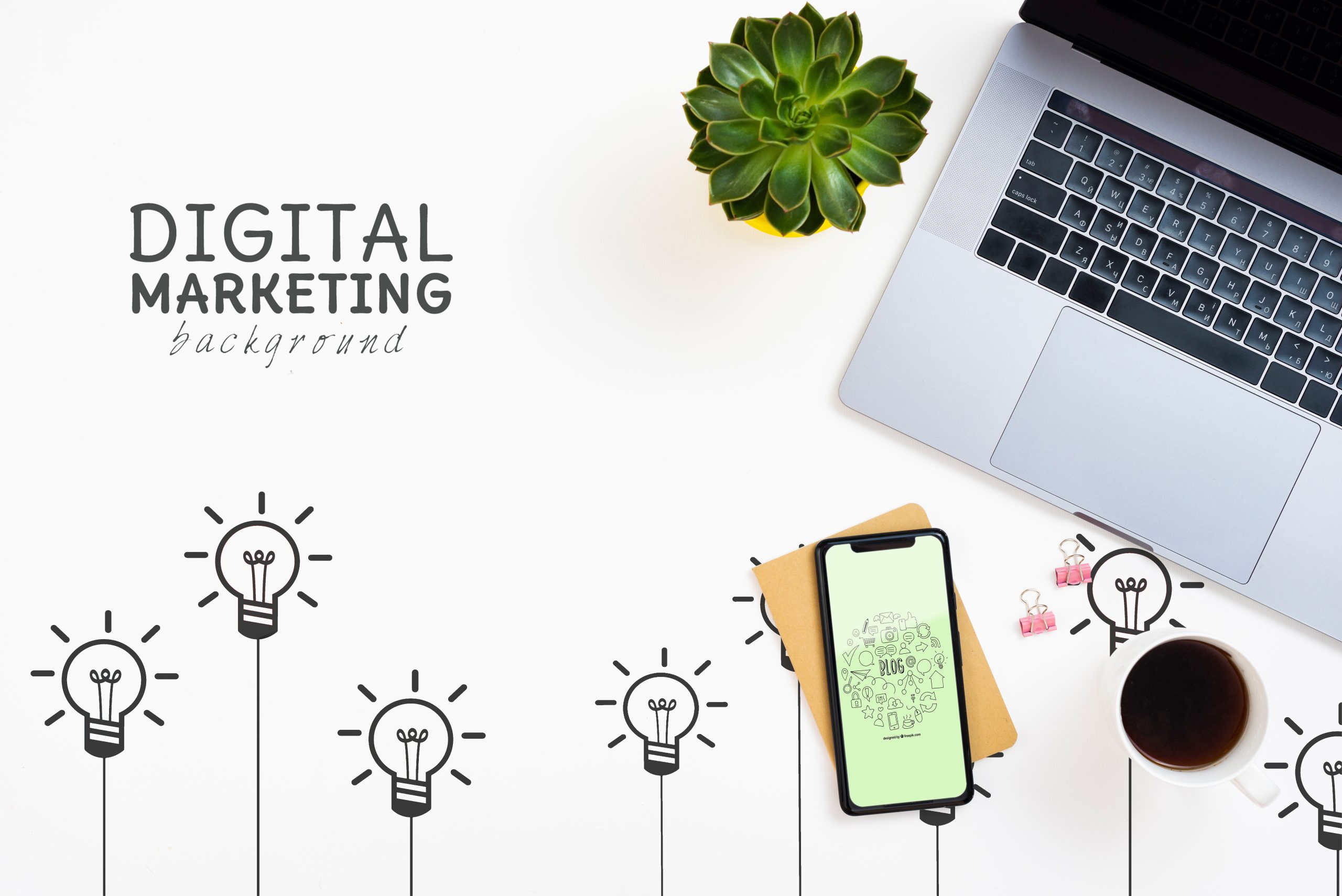
In today’s ever-evolving digital landscape, staying ahead of the competition is paramount for businesses. To achieve omni-channel success, it’s essential to elevate your marketing game and embrace the power of artificial intelligence (AI) integration. AI integration offers a myriad of benefits, from optimizing marketing strategies to enhancing customer experiences.
By incorporating AI into your marketing efforts, you can gain valuable insights into consumer behavior, preferences, and purchasing patterns. This allows you to personalize your messaging and offerings, maximizing engagement and conversions. AI-powered data analytics can also refine your targeting efforts, ensuring your marketing messages reach the right audience at the right time.
Moreover, AI integration enables automation of mundane and time-consuming tasks, freeing up valuable resources and empowering your marketing team to focus on strategic initiatives. From social media monitoring to chatbot assistance, AI-powered tools streamline communication channels, providing convenience and immediate support to your customers.
As the next frontier in marketing innovation, AI integration holds immense potential to revolutionize omni-channel success. By leveraging the power of AI, businesses can deliver personalized experiences, drive customer loyalty, and ultimately achieve sustainable growth in today’s competitive marketplace.
The importance of omni-channel marketing
Omni-channel marketing refers to the seamless integration of various marketing channels to create a unified and consistent customer experience. This approach recognizes that consumers interact with brands through multiple touchpoints, such as websites, social media, mobile apps, and physical stores. By implementing an omni-channel strategy, businesses can deliver a cohesive brand message and provide a seamless customer journey.
Traditional marketing approaches often focus on individual channels in isolation, leading to fragmented customer experiences. In contrast, omni-channel marketing aims to break down silos and create a unified brand presence across all channels. This approach not only enhances customer satisfaction but also improves brand perception and increases customer loyalty.
What is AI integration in marketing?
AI integration in marketing refers to the incorporation of artificial intelligence technologies and algorithms into various marketing processes and strategies. AI-powered tools and platforms enable businesses to analyze vast amounts of data, automate repetitive tasks, and make data-driven decisions. The ultimate goal is to enhance marketing effectiveness, improve customer experiences, and drive business growth.
AI integration in marketing encompasses a wide range of applications, including data analytics, predictive modeling, chatbots, virtual assistants, and recommendation engines. These technologies leverage machine learning and natural language processing to understand and respond to customer behaviors, preferences, and queries. By harnessing the power of AI, businesses can deliver highly personalized and targeted marketing messages, leading to increased customer engagement and conversions.
Benefits of AI integration in omni-channel marketing
1. Enhanced Personalization: AI integration allows businesses to collect and analyze vast amounts of customer data, enabling personalized marketing messages and offerings. By understanding individual preferences and behaviors, businesses can tailor their communications to resonate with customers on a deeper level, increasing engagement and conversions.
2. Optimized Targeting: AI-powered data analytics can refine targeting efforts, ensuring marketing messages reach the right audience at the right time. By analyzing customer behaviors and purchase patterns, businesses can segment their audience and deliver relevant content across multiple channels, maximizing the impact of their marketing efforts.
3. Automation of Mundane Tasks: AI integration enables automation of repetitive and time-consuming tasks, freeing up resources and allowing marketers to focus on strategic initiatives. From social media scheduling to email marketing automation, AI-powered tools streamline workflows, improve efficiency, and increase productivity.
4. Improved Customer Experiences: AI-powered chatbots and virtual assistants provide immediate support and assistance to customers, enhancing their overall experience. These tools can handle routine inquiries, provide product recommendations, and even complete transactions, ensuring customers receive prompt and accurate assistance.
5. Data-driven Decision Making: AI integration enables businesses to make data-driven decisions based on real-time insights. By analyzing customer data and market trends, businesses can identify opportunities, optimize marketing strategies, and drive continuous improvement.
Examples of successful AI integration in marketing
1. Netflix: Netflix leverages AI algorithms to analyze user behavior and preferences, providing personalized recommendations for movies and TV shows. By understanding individual viewing patterns, Netflix can deliver highly targeted content, increasing user engagement and retention.
2. Amazon: Amazon’s recommendation engine uses AI to analyze customer purchase history and browsing behavior, providing personalized product recommendations. This targeted approach enhances the shopping experience and drives additional sales.
3. Spotify: Spotify’s AI-powered algorithms analyze user listening habits, generating personalized playlists and recommendations. By understanding individual music preferences, Spotify keeps users engaged and encourages them to discover new artists and songs.
4. Starbucks: Starbucks utilizes AI integration to power its mobile app, enabling personalized offers and recommendations based on customer preferences and purchase history. This approach enhances the overall customer experience and encourages loyalty.
How to implement AI integration in your marketing strategy
1. Define Your Objectives: Start by identifying your marketing objectives and how AI integration can help you achieve them. Whether it’s improving personalization, optimizing targeting, or automating tasks, align your AI integration efforts with your business goals.
2. Collect and Analyze Data: Gather relevant customer data from various sources, such as website analytics, CRM systems, and social media platforms. Use AI-powered data analytics tools to analyze and derive insights from this data, enabling personalized marketing strategies and refined targeting.
3. Choose the Right AI Tools and Platforms: Research and select AI-powered tools and platforms that align with your marketing objectives and budget. Consider factors such as ease of integration, scalability, and customer support. Popular options include chatbot platforms, predictive analytics tools, and recommendation engines.
4. Implement Pilot Projects: Start small by implementing AI integration in specific areas of your marketing strategy. This approach allows you to test the effectiveness of AI-powered solutions and make adjustments as needed. Monitor key metrics and gather feedback to measure the impact of AI integration on your marketing efforts.
5. Train and Educate Your Team: Provide training and education to your marketing team to ensure they understand how to leverage AI-powered tools effectively. Encourage a culture of continuous learning and experimentation to maximize the benefits of AI integration.
Challenges and considerations in AI integration
While AI integration offers numerous benefits, there are also challenges and considerations to be aware of:
1. Data Privacy and Security: Collecting and analyzing customer data raises concerns about privacy and security. Ensure compliance with relevant data protection regulations and implement robust security measures to protect customer information.
2. Ethical Use of AI: AI integration raises ethical questions related to transparency, fairness, and bias. Develop guidelines and practices to ensure the responsible and ethical use of AI technologies in your marketing efforts.
3. Integration Complexity: Integrating AI-powered tools and platforms with existing marketing systems can be complex. Consider the compatibility of different technologies and the need for technical expertise or external support.
4. Change Management: Implementing AI integration requires a cultural shift and change management within the organization. Ensure proper communication and training to facilitate the adoption and acceptance of AI-powered solutions.
Tools and platforms for AI integration in marketing
1. Chatbot Platforms: Chatbot platforms like Chatfuel, ManyChat, and Dialogflow enable businesses to create AI-powered virtual assistants that can handle customer inquiries and provide personalized recommendations.
2. Predictive Analytics Tools: Predictive analytics tools such as Google Analytics, IBM Watson, and Salesforce Einstein Analytics allow businesses to analyze customer data and predict future behaviors, enabling targeted marketing strategies.
3. Recommendation Engines: Recommendation engines like Amazon Personalize, Adobe Target, and Dynamic Yield analyze customer data to provide personalized product recommendations, increasing conversion rates and customer satisfaction.
4. Social Media Listening Tools: Social media listening tools such as Sprout Social, Hootsuite, and Brandwatch leverage AI to monitor and analyze social media conversations, enabling businesses to understand customer sentiment and engage in real-time.
AI integration case studies
1. Sephora: Sephora uses AI integration to power its Virtual Artist feature, which allows customers to try on different makeup looks virtually. By leveraging AI algorithms, Sephora enhances the online shopping experience, increasing customer engagement and sales.
2. Uber: Uber utilizes AI integration to optimize its dynamic pricing model. By analyzing real-time data such as demand and supply, Uber adjusts prices to maximize efficiency and balance supply and demand.
3. Coca-Cola: Coca-Cola implemented AI integration in its vending machines to personalize customer interactions. By analyzing customer data and preferences, Coca-Cola offers personalized promotions and recommendations, enhancing the overall customer experience.
Future trends in AI integration for omni-channel success
1. Voice Search Optimization: With the rise of voice assistants like Siri, Alexa, and Google Assistant, optimizing marketing strategies for voice search will become crucial. AI integration will play a vital role in understanding and responding to voice queries effectively.
2. Augmented Reality (AR) and Virtual Reality (VR): AI-powered AR and VR technologies will enable businesses to create immersive and personalized experiences for customers. From virtual try-on experiences to interactive product demonstrations, AI integration will enhance engagement and drive conversions.
3. Hyper-Personalization: AI integration will continue to advance personalization efforts, allowing businesses to deliver highly tailored content and recommendations based on individual preferences, demographics, and real-time behavior.
4. Intelligent Automation: AI-powered automation will expand beyond mundane tasks to more complex processes, such as lead nurturing, content creation, and campaign optimization. This will free up resources and enable marketers to focus on strategic initiatives.




